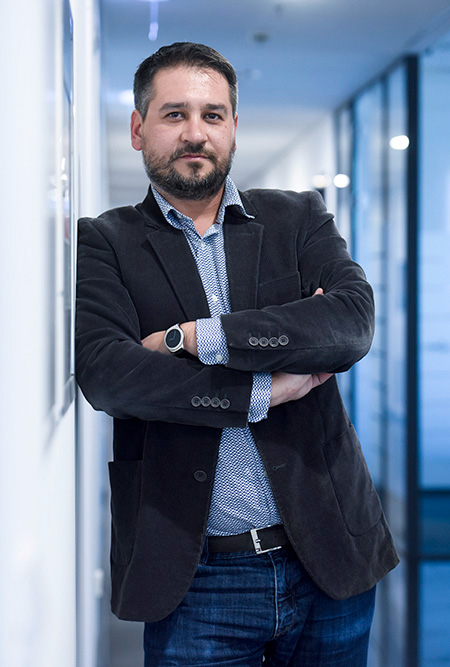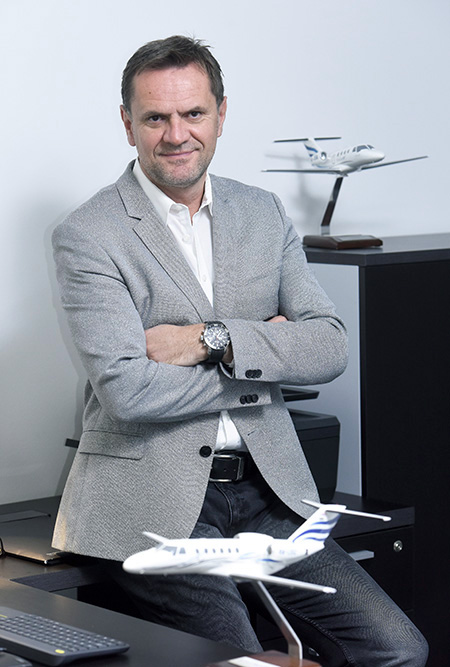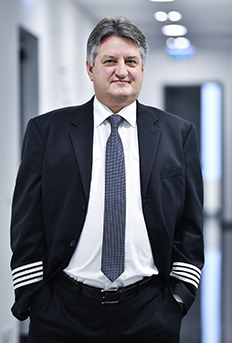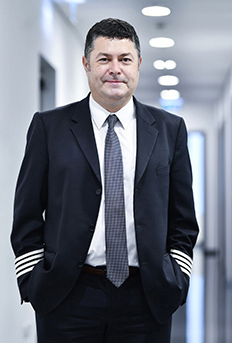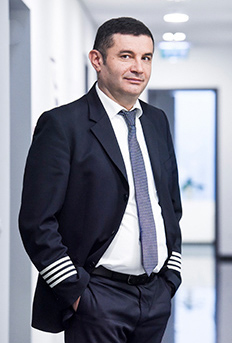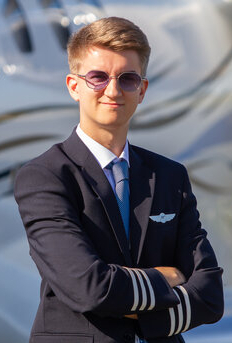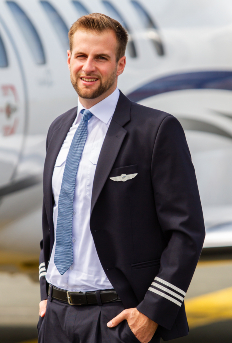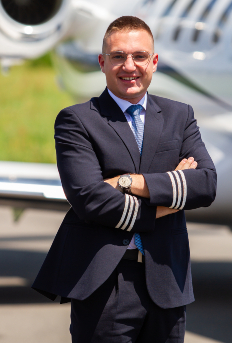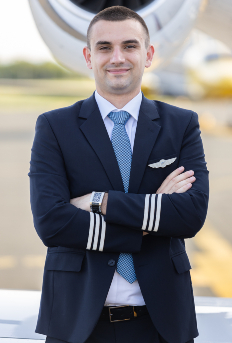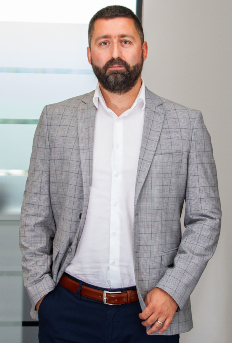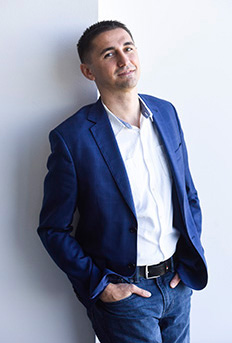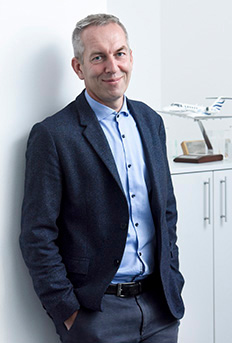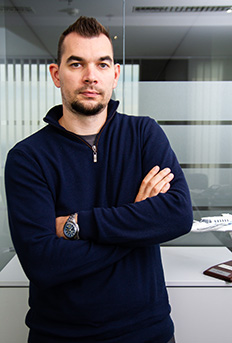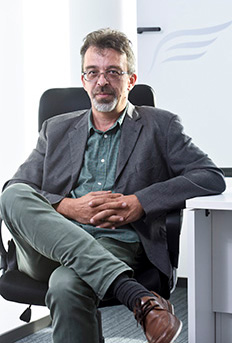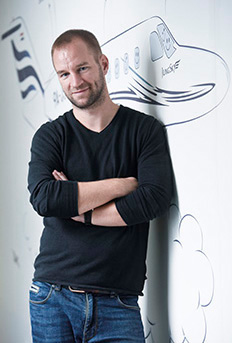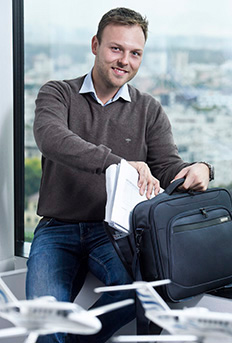News & Blog
Interview with Kresimir Jung and Kresimir Vlasic for Lider magazine
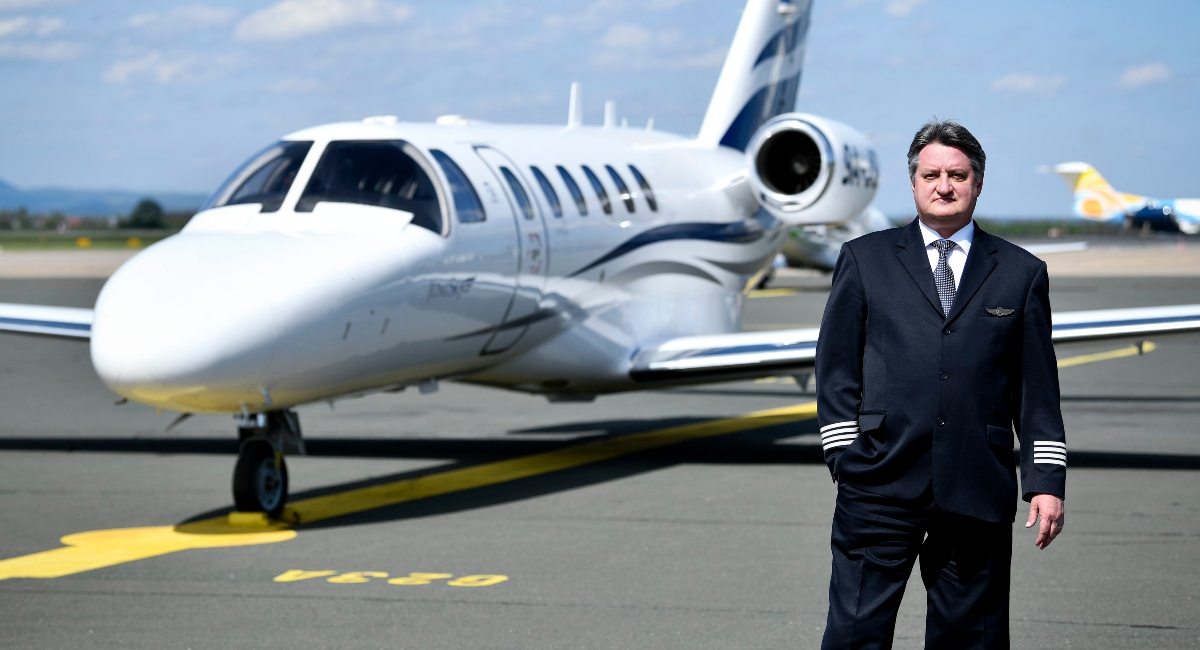
In its edition from September 28 2023, Croatian business weekly "Lider" published an extensive interview with Kresimir Jung, co-owner, board member and one of the captains at Jung Sky, and the company's COO Kresimir Vlasic. The author of the article is Jozo Knez and the original article can be found here.
---
For almost fourteen years now, the airline company Jung Sky has been flying the skies, led by Kresimir Jung, the company's co-owner and one of the crew captains. The company's growth was continuous, from initially offering just panoramic flights over Zagreb and Brac island in 2009-2010, to the complex market of business aviation. They purchased their first business jet back in 2011, after which they went through a period of positioning Jung Sky in a very demanding BA industry.
And proved themselves they did, given the fact the company performed a record-breaking number of flights in the first part of 2023. Also, an even bigger and more important matter is the opening of a certified line maintenance station in Varazdin (LDVA; Croatia) which was the main reason for this conversation.
Let us start with LDVA Varazdin, where you established your line maintenance station, where you have your own maintenance hangar and where you started the procedure of certifying a base maintenance station. How come you chose Varazdin Airport for this?
Capt. Kresimir Jung, Board Member and Co-Owner: At the beginning, our wish was to set up our maintenance organization at Zagreb Airport because that's where our fleet base is. However, the primary condition for establishing any type of an adequate maintenance organization is the maintenance hangar which we could not resolve in Zagreb because there are no hangars that are available, and there aren’t any development plans for new hangars either. In Varazdin, the hangar issue was resolved pretty quickly, but our readiness to opt for LDVA was also about their vision, plans and interests being completely aligned with ours. Furthermore, the city of Varazdin is the centre of a region bursting with potential in terms of tourism, and the need to form the complete infrastructure necessary to activate the capacity of business aviation as a source of high paying clientele was highlighted as a very important element in developing this potential. Jung Sky will play an important part in this process, through our regular flight operations, but also through maintenance services.
What is the difference between line and base maintenance?
Kresimir Vlasic, Chief Operating Officer: It's about the hangar, first and foremost. It's also about the scope of activities. Base maintenance implies more complex works that require a controlled environment so therefore the existence of a hangar is one of the key prerequisites for developing such a service. Base maintenance also includes more people in the works which are not performed throughout the whole year, but periodically. Line maintenance activities are more simple inspections and works that are carried out more often and, generally, do not require major 'disassembly' of the aircraft which is the practice in base maintenance. Line maintenance is based on testing and monitoring of key aircraft systems as well as preventive inspections of critical areas of the aircraft structure. Most line maintenance works can be done in a shorter period of time, at regular intervals, and do not require hangar space unless the weather conditions are very specific or bad.
In addition to maintaining your own aircraft, will you offer the service to others? And who could benefit from those services?
Kresimir Vlasic, Chief Operating Officer: The first step is to confirm the implementation of activities on our own fleet, and then offer it to other business aviation operators. Our organization is currently certified for line maintenance of Cessna 525, 525A and 525B jets, but it can also be useful to any other operator because, even when it comes to other types of aircraft, our experts in Zagreb and Varazdin can provide a quick, on-the-spot assistance and be a much needed support to maintenance organizations of other airlines.
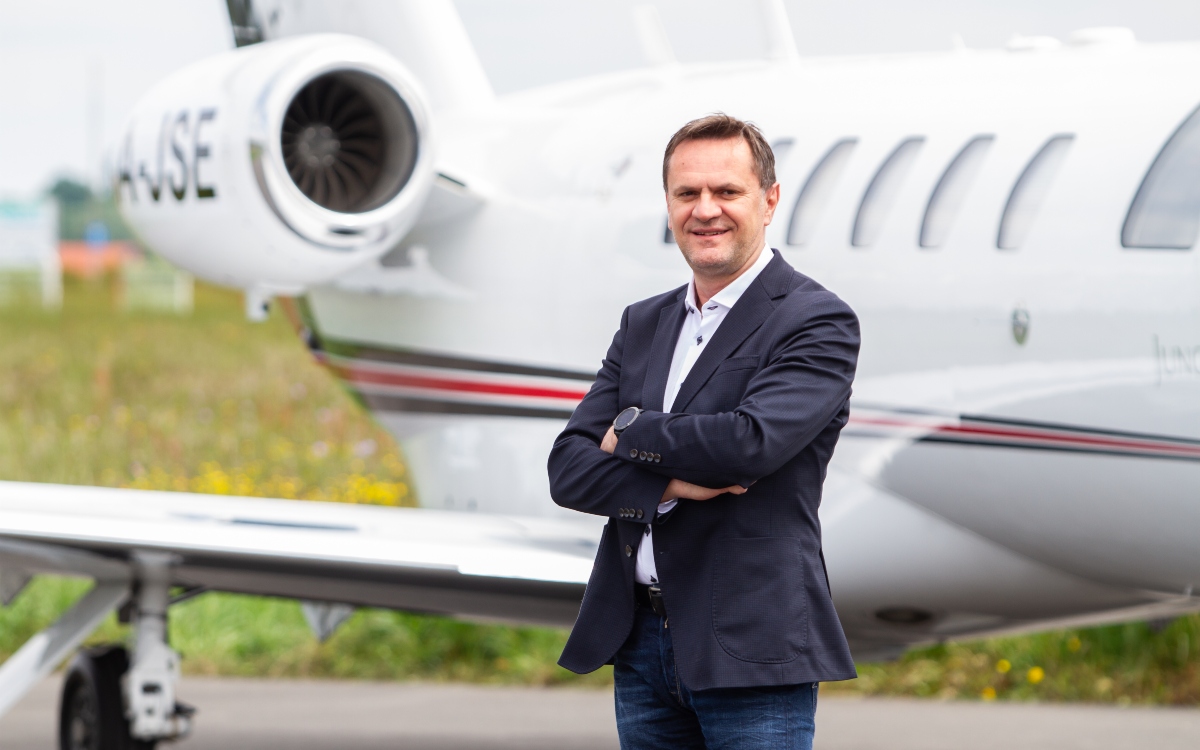
Where did the idea of developing your own maintenance department come from? Isn't that expensive? What is the ultimate goal?
Capt. Kresimir Jung, Board Member and Co-Owner: Throughout its history, and it's now almost fourteen years since the company was founded, Jung Sky has been dependent on external aircraft maintenance organizations which always increased our expenditures and affected our flexibility in flight ops planning. We now want to eliminate that dependency. The investments are initially significant, but we expect them to eventually lead to cost reduction as well as new revenues. The long-term goal is to become the organization that other business aviation operators will use for line and base maintenance of their fleet. In terms of our core business, performing private and business flights, we have built a reputation of a company everyone wants to work with. In the long run, we want to replicate that reputation on the aircraft maintenance market.
Is it difficult to find experts in aircraft maintenance in Croatia? How many people will you need to hire?
Kresimir Vlasic, Chief Operating Officer: It definitely isn’t simple. We are a part of a very competitive market that stretches out throughout Europe, and this type of expertise is extremely valued. Generally speaking, after completing their education, aircraft mechanics must acquire a minimum of five years of experience in order to even get the chance to become certified and independently perform maintenance works on a certain type of aircraft. At the same time, it takes at least three months to get certified for a certain type of aircraft. Unfortunately, aircraft mechanics authorized to work on our aircraft type are a rarity in Croatia which is why we were forced to hire mechanics without the proper authorization, but whom we then sent to get certified, at the company’s expense of course. We currently employ three top-notch maintenance experts with extensive experience, but when establish our own base maintenance - we will increase their number.
At the end of April 2023, you increased the number of jets in your fleet. How many aircraft do you have now, which jets are they and what do you expect from the fleet addition? How much of an increase in revenue is expected with the additional aircraft?
Capt. Kresimir Jung, Board Member and Co-Owner: Our fleet now consists of three Cessna 525A CJ2 jets. It is a very popular jet in the business aviation world with a capacity of six passenger seats. This fleet addition allows us greater flexibility in scheduling and certainly even greater availability, and this will make our clients happy because they often comment how they would like to fly with us more often, but unfortunately for them (and fortunately for us) - our planes are almost constantly already booked. Once we stabilize the three-jet operation, we can talk about a potential 25+ percent increase in yearly revenue.
With the additional aircraft, do you now need to hire new pilots? Are there many pilots in Croatia that are available and how do you get them to come and fly for you?
Capt. Kresimir Jung, Board Member and Co-Owner: When the acquisition of the new plane was certain, we started looking for five new pilots. The situation is very similar to the one of the mechanics. They are all part of an open, global market and opportunities can potentially come from anywhere, anytime. We generally tend to hire domestic pilots and we try to attract them by covering the otherwise rather high costs for their type rating, plus we offer them a promising career in which they can reach to the rank of a captain relatively quickly. Business aviation is a phenomenal industry for young pilots because the overall pace is very dynamic, we fly to several hundred destinations a year, skills and knowledge are honed very quickly and the experience gained is something completely different from the one they would get from flying for big commercial airlines.
What do you expect from this year and the next?
Capt. Kresimir Jung, Board Member and Co-Owner: One of the key features of business aviation from the passenger's perspective is the ability to choose departure and arrival destination. This is precisely why Jung Sky flies to about two hundred airports in more than thirty countries every year. With occasional exceptions due to regular maintenance and the somewhat slower winter season, our jets are in the air every day, with an average of two to four flights per day & per aircraft. We are satisfied with the direction in which we are heading and happy about our fleet addition, but we avoid using the term 'expectations' because our operations can be affected by many external factors that are not under our control. We only want to continue to be a team of satisfied employees, proud of the safety of our operations and the quality of the service we provide.
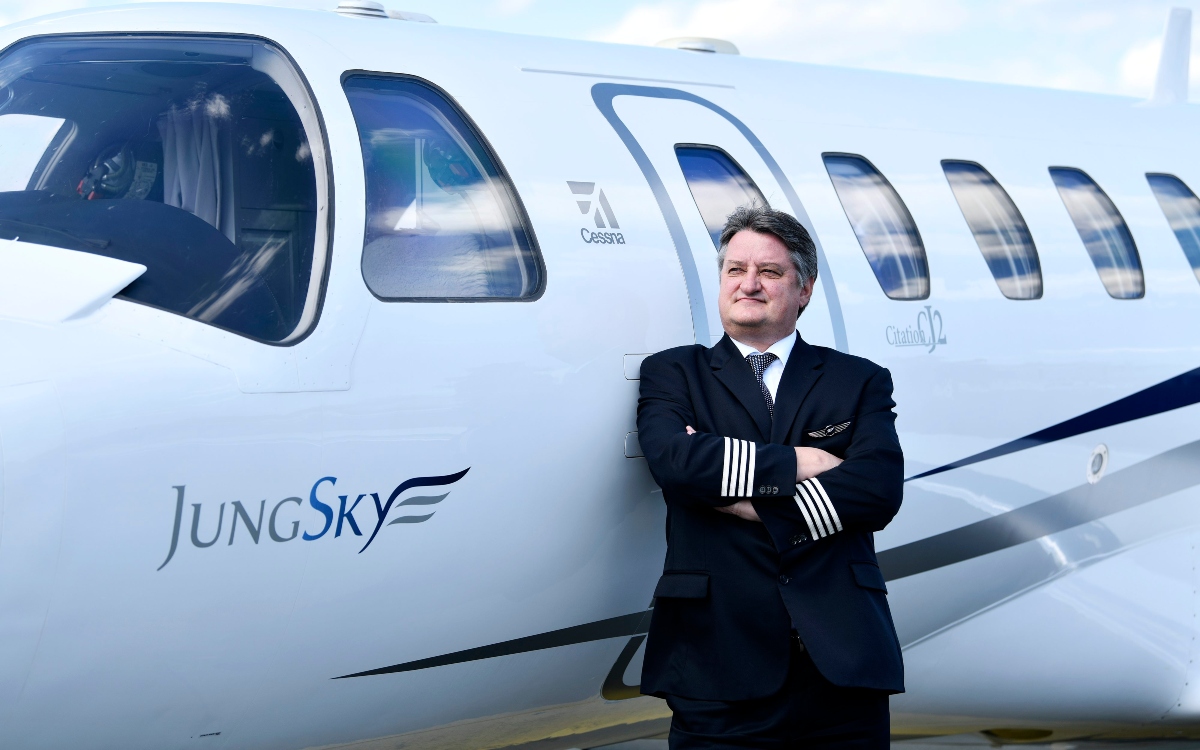
The entire interview can be found in the print or digital edition of the business weekly Lider from September 29, 2023.
View previous news:
Recommendation:
Other:
Here, you book yourself the always interesting Jung Sky newsletter which keeps you in touch with all the nice things that are happening to us. Don't worry, we won't be a nuisance, smooth flying is the only way we roll.

